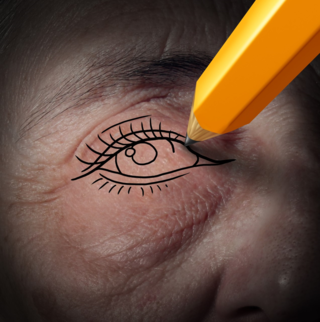Relationships
The Only Person You Can Change Is You
We all have one great power.
Posted June 23, 2020 Reviewed by Kaja Perina

With everything that is happening in the world, you might be wondering how you can get people to see the folly of their ways. How do you get them to see the light and learn from their mistakes? How do you open their eyes to what’s wrong with the world, and that what’s wrong with them is a big contributor? And very importantly, how do you get them to see what you see and learn what’s right—from your vantage point?
You don’t. It might be one of the biggest frustrations of human life that you can’t forcibly change another person’s mind or viewpoint. It doesn’t mean you don’t share ideas. It doesn’t mean you don’t share insights, articles, information, or interests with those you care about. It means that in order to make lasting change, real change that resonates throughout the Universe, you have to start with you.
Before you get upset—I’m not saying you are the problem. I’m not saying you have done anything wrong, or that you don’t have great knowledge you can share. I’m saying that we all have one great power and that is the power to change ourselves. We can’t change our height, or ethnicity, or blood type, but we can change our actions and reactions, and in doing so, we can make an impact on many others around us. Instead of working so hard to get someone else to do what they need to do, consider learning more about yourself and being a role model for change.
- Examine your own prejudices and biases. Do you apply negative and judgmental words to other people? Do you have a trigger reaction when someone does something you don’t like and you label it “bad” or “rude” or “insensitive”? Do you have views on people such that when you see someone do something you immediately tag it with your beliefs? Don’t judge yourself, but watch these reactions. It’s a rare human being who doesn’t have them in some way. Notice them, and instead of judging yourself, examine where the belief comes from. The more you learn about the origins, the more you will understand your own reactions.
- Be more inquisitive than informative. Most people want others to get excited about what they know. It’s great to share and be an educator, but be sure you listen and learn as much as you speak. Try and think “where, why and how?”—where does that other person come from in their beliefs? Why do they think what they do? How have they developed the attitude they have? You don’t have to agree with everything, but you might gain an insight or tidbit about someone else.
- Pause before you jump in. The simple pause can be one of the most powerful things you use. It’s also known as biting on one’s tongue; sometimes before you assume, or respond, or set someone straight, you take a pause. This can be in the form of a few deep breaths. It can be closing your eyes for a couple of seconds to process. It can be giving non-verbal signs that you are listening, but not ready to respond. Relationships have been made and lost on the use of the pause. You might still want to say or do what you immediately felt was right; just give yourself a few seconds to make sure.
- Check your ego. Being right is rarely as important as being in relationship. In fact, the person who needs to be right all of the time, is most often the least-liked person in a given relationship. Eventually you alienate people who don’t want to argue, or cajole you. They will avoid discussions because your right-ness is too overwhelming for them to deal with. You might be right—most people are right at least some of the time! Just watch yourself and make sure your desire to share isn’t the same thing as your desire to have the last word, and to be the one who is right.
- Look in the mirror, often. It’s so easy to look out there and see all of the people who need to shape up in their attitude, do something different and get better. Gosh, the world is absolutely filled with them. Some days you probably wonder how they function, since they are doing so poorly on the self-reflection and self-awareness spectrum! The thing is, it’s much easier to see someone else’s foibles than it is to examine your own. Again, no judging. No beating up on yourself or wishing you were different. Just noticing that the journey of becoming a better person is one we are all traveling, and fixing yourself is the only way you are going to ever be able to help and support others.


